Tai Chi offers three key benefits for managing chronic illness. First, its gentle movements build strength and flexibility without straining your body. Second, synchronized breathing techniques reduce stress and anxiety by activating your relaxation response. Third, Tai Chi adapts to all mobility levels with seated or standing options requiring no special equipment. These accessible practices create both immediate comfort and long-term improvement for your condition, with benefits that continue to unfold with consistent practice.
Gentle Movements for Physical Strength and Flexibility
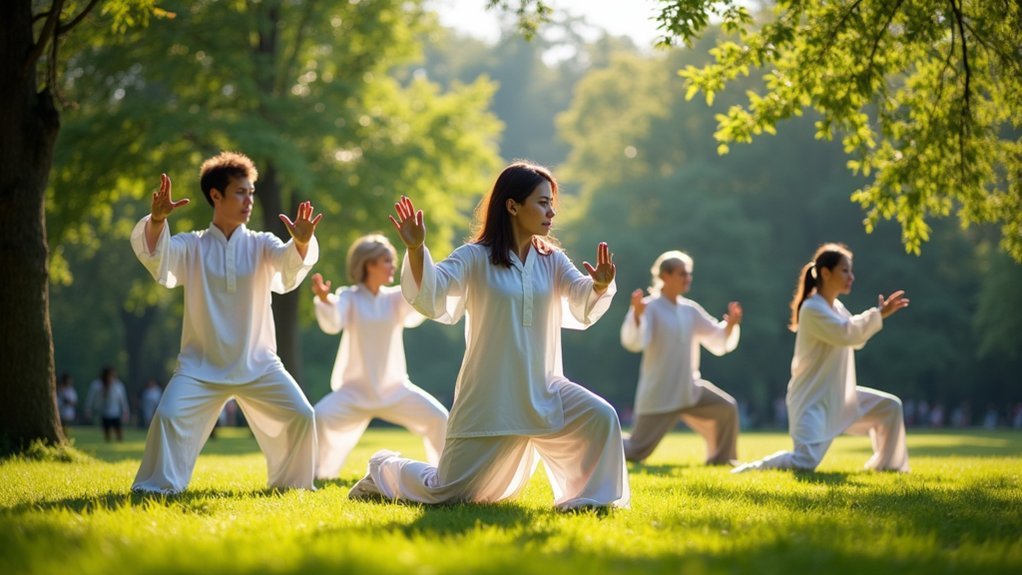
Three key qualities make tai chi an ideal exercise for those living with chronic illness: gentleness, adaptability, and effectiveness.
The low-impact nature of tai chi’s flowing movements allows you to build physical strength without straining your body, making it perfect if you’re managing chronic illnesses.
Research shows tai chi can improve muscle strength comparable to resistance training while enhancing flexibility throughout your body.
You’ll also develop better balance and coordination, which is especially valuable for older adults concerned about falls.
As you practice, you’ll gain greater awareness of your body positioning through the deliberate movements.
Depending on your pace, tai chi can even provide aerobic conditioning benefits, boosting your energy and stamina.
The gentle yet powerful approach offers extensive physical benefits while respecting your body’s limitations.
Breathing Techniques to Reduce Stress and Anxiety
At the heart of tai chi’s therapeutic power lies its emphasis on deep, mindful breathing, which directly addresses the stress and anxiety often accompanying chronic illness. When you practice tai chi’s breathing techniques, you’ll activate your body’s natural relaxation response, similar to what you’d achieve with traditional exercise.
| Breathing Technique | Benefits | Mental Health Impact |
|---|---|---|
| Deep, slow breaths | Reduces anxiety levels | Promotes meditative state |
| Synchronized breathing | Regulates mood hormones | Enhances emotional well-being |
| Mindful breath awareness | Lowers stress markers | Supports long-term improvements |
The integration of these breathing practices with gentle movements creates a powerful combination that can transform your relationship with chronic illness. You’ll find that consistent practice helps establish calm that extends well beyond your tai chi sessions.
Adaptable Practice for All Mobility Levels
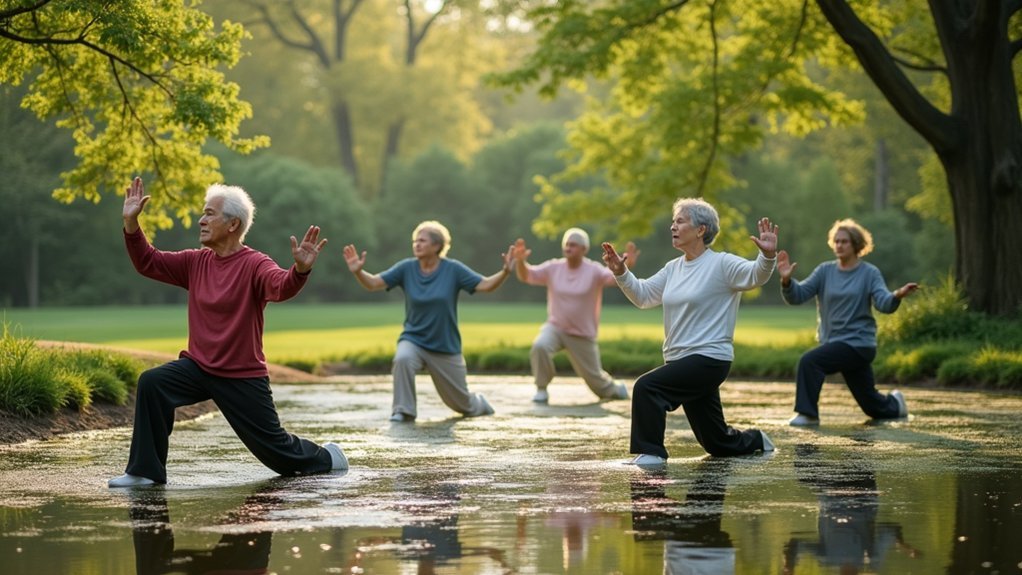
Despite common misconceptions that exercise requires vigorous movement, tai chi stands out as an incredibly versatile practice that accommodates nearly all physical limitations.
You can participate in this adaptable practice while seated or standing, making it perfect if you’re managing chronic pain or recovering from surgery.
Tai chi’s gentle movements flow naturally, creating a low-impact routine that won’t stress your joints. Tailored classes guarantee you’ll exercise at your own pace, regardless of your mobility level.
Embrace tai chi’s fluid movements—gentle on your body, adaptable to your abilities, and perfectly paced for your personal journey.
You don’t need any specialized equipment, which makes tai chi an accessible option for everyone.
Can’t find local classes? Instructional videos and DVDs offer convenient alternatives to learn tai chi at home.
This accessibility guarantees you can enjoy its benefits even with limited mobility or transportation challenges.
Frequently Asked Questions
What Illness Does Tai Chi Help?
Tai chi helps you manage osteoarthritis, COPD, fibromyalgia, depression, and anxiety. You’ll experience reduced pain, improved breathing, better muscle strength, enhanced mental health, and improved sleep quality through regular practice.
How Does Tai Chi Heal the Body?
Tai Chi heals your body by building strength and flexibility, reducing pain, improving balance, enhancing respiratory function, and fostering mind-body connection. You’ll experience less stress, which supports your body’s natural healing processes.
How Does Tai Chi Improve Health in Older Adults?
Tai chi improves your health as an older adult by enhancing balance, building strength, boosting cognitive function, alleviating chronic condition symptoms, and reducing stress through mindful movements and deep breathing practices you’ll enjoy regularly.
What Are the 5 Benefits of Tai Chi?
You’ll gain five key benefits from tai chi: increased muscle strength and flexibility, better balance, reduced anxiety and depression, improved sleep quality, and accessibility regardless of your fitness level or mobility limitations.
In Summary
You’ll find tai chi fits seamlessly into your chronic illness management plan. By incorporating these gentle movements, mindful breathing techniques, and adapting practices to your abilities, you’re gaining powerful tools for daily wellness. Even just a few minutes each day can improve your balance, reduce pain, and calm your mind. Start where you are—tai chi welcomes you exactly as you are, meeting your unique health journey with compassion.

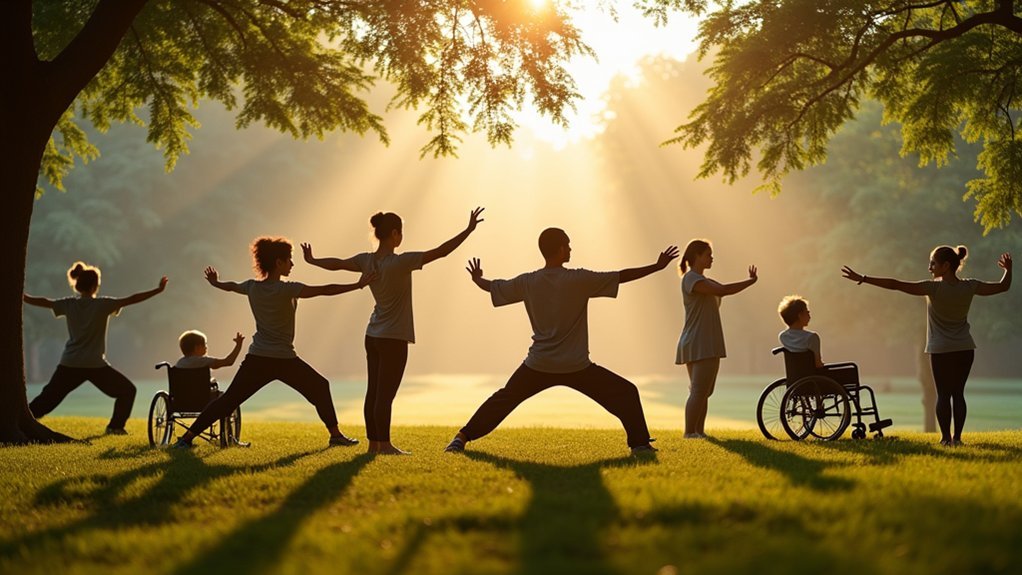
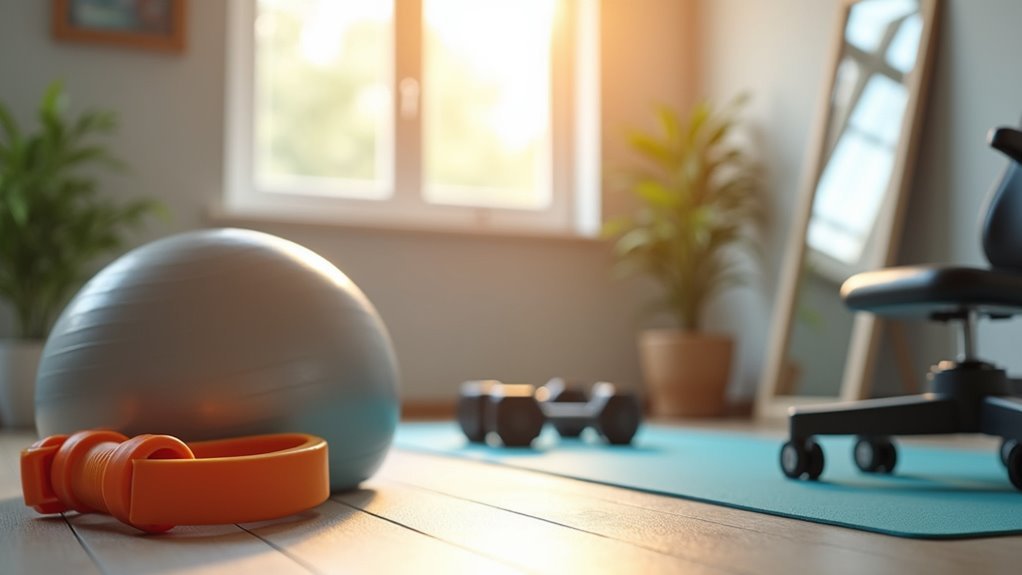
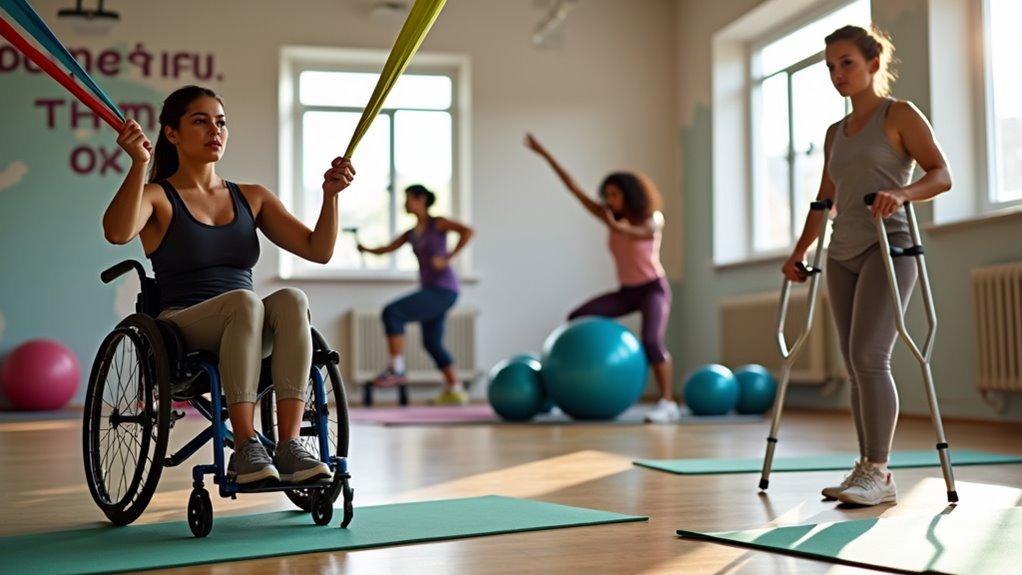
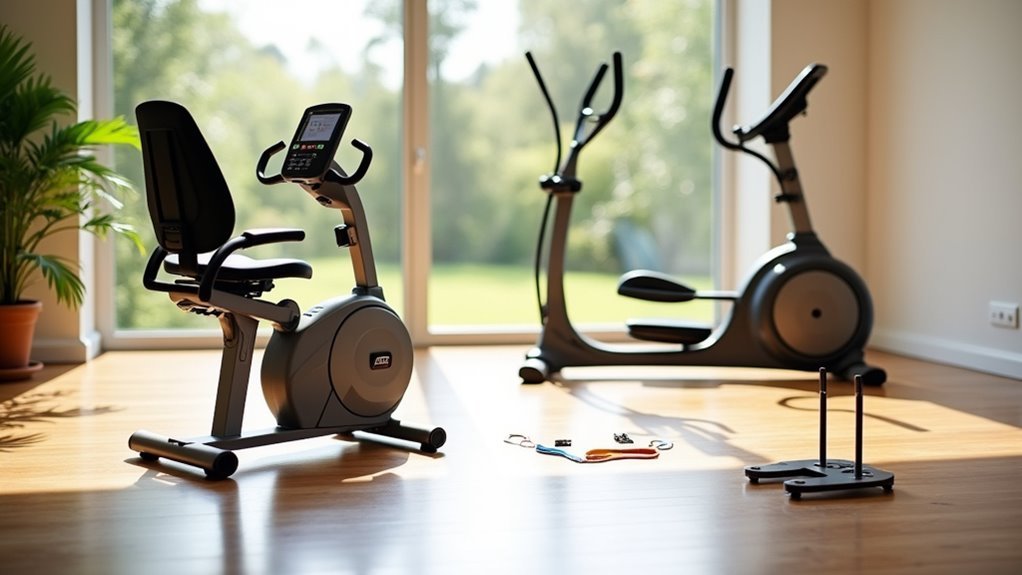
Leave a Reply